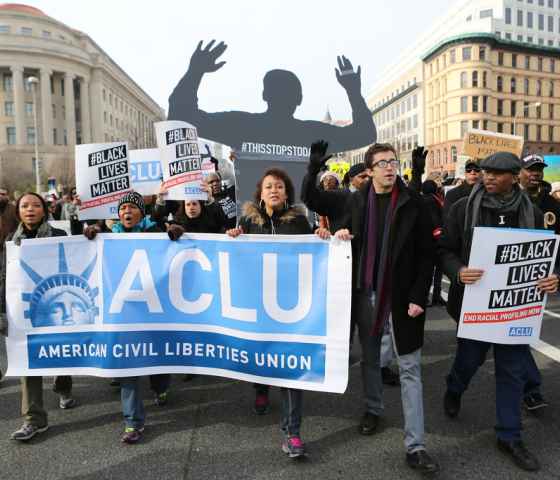The “One Big Beautiful Bill Act,” otherwise known as the reconciliation package, reflects a shift toward sectoral prioritization at the expense of social welfare programs such as TANF, Medicaid, and SNAP. The bill imposes new requirements that could undermine these programs' core mission of supporting those in poverty. While aimed at reducing fraud, waste, and abuse, the policies overlook the complexities of poverty and risk further harming vulnerable communities. The ACLU of Mississippi has outlined concerns about the potential real-world impact on residents across the state.
Medicaid
- Requires that able-bodied individuals 19-64 to work or participate in community engagement. Able-bodied adults must work or participate in qualifying activities for at least 80 hours. Those who lose a job or fail to fulfill the paperwork would lose Medicaid coverage and be locked out from obtaining tax credits for private insurance in the marketplaces (Families USA, 2025).
- Reduces retroactive coverage for Medicaid and CHIP programs. Imposes hospital and medical bills on eligible Americans seeking care by restricting retroactive coverage from three months to one month prior to enrollment (Families USA, 2025).
- Increases premiums and cost-sharing for people who purchase health insurance through federal or state-based Marketplaces (Families USA, 2025). 273,579 Mississippi residents who rely on Marketplace plans for their coverage will see an increase in insurance costs and a reduction in benefits. (Kaiser Family Foundation, 2024).
- Limits state provider taxes. Since the Mississippi Hospital Access Program (MHAP) is funded through hospital provider taxes, this policy freezes the ability to generate revenue to finance Medicaid coverage, which could force the state to cut benefits or significantly reduce provider reimbursement rates (Families USA, 2025).
SNAP
- Imposes higher costs on states by requiring that states pay a 5 percent share of SNAP. As these cost shares and federal funding reductions accumulate, states may adjust eligibility requirements, which will drastically reduce the number of families that depend on SNAP.
- Federal funding to state administrative costs will decrease by 25 percent. In 2024, Mississippians were affected by federal rules that increased call volume and server connection issues. With the change in SNAP eligibility requirements, a reduction in the administrative cost will strain the system further.
- Raises the age limit from 54 to 64 for able-bodied adults without dependents and extends the requirement to adults with children aged 7 and older (NCSL, 2025). As a result, 15.8% of older adults in Mississippi could lose benefits if they don't meet work requirements. The exemption for caregivers is narrowed, now requiring those with children 7 or older to comply. What happens to children whose parents or guardians must work past school hours? While there are a few state-funded after-school programs, federal funding reductions could impact the support and availability of state-funded after-school care.
TANF
- Reducing 10% of federal TANF funding for states. Reducing TANF funding—when MS is already struggling with long-standing administrative challenges [1] such as the lack of sufficient staffing and the absence of institutional knowledge of TANF administration. These challenges would further undermine its ability to support families who rely on it for basic assistance and stability.
- Elimination of the TANF contingency fund. The state of Mississippi sometimes relies on TANF contingency funds to help cover funding shortfalls in other supportive services such as child care and work-related expenses. Without this safety net, Mississippi could face deeper challenges in sustaining essential services that contribute to the state’s economic stability.
- Prevents the Department of Health and Human Services from waiving penalties for states that do not meet TANF work requirements (NCSL, 2025). Only a few thousand Mississippians are receiving TANF’s cash benefit, and bureaucratic barriers throughout the TANF application process are partially to blame (Mississippi Public Broadcasting, 2024). MS already imposes stringent TANF requirements; this policy will act as another bureaucratic barrier to further suppress families in need of assistance.
[1] Mississippi Democrats say post-scandal TANF program is still failing poor residents
Our Conclusion:
The “One Big Beautiful Bill Act” presents a double-edged sword for Mississippi, promising fiscal responsibility but potentially exacerbating existing challenges for vulnerable populations. As the state grapples with these sweeping changes to Medicaid, SNAP, and TANF, the impact on low-income families and individuals could be profound. While aimed at reducing fraud and promoting self-sufficiency, these reforms risk creating new barriers to essential services and deepening the cycle of poverty for many Mississippians.
The act’s emphasis on work requirements and reduced funding may lead to unintended consequences, straining an already burdened social safety net. As administrative costs are cut and eligibility criteria tightened, the state faces a delicate balancing act between fiscal prudence and meeting the needs of its most vulnerable citizens. The potential loss of healthcare coverage, food assistance, and cash benefits could have far-reaching effects on public health, child welfare, and economic stability across the state.
As Mississippi navigates this new landscape, policymakers, advocates, and community leaders must work together to mitigate the negative impacts and ensure that the state’s social programs continue to serve those who need them most. The coming years will be crucial in determining whether the “One Big Beautiful Bill Act” lives up to its name or leaves behind those it was meant to help.
